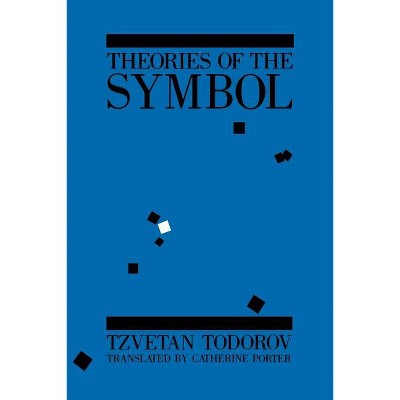About this item
Highlights
- In Living to Tell about It, James Phelan takes up the challenges offered by diverse narratives including Kathryn Harrison's The Kiss, Ernest Hemingway's "Now I Lay Me," Kazuo Ishiguro's Remains of the Day, Frank McCourt's Angela's Ashes, Vladimir Nabokov's Lolita, and John Edgar Wideman's "Doc's Story.
- About the Author: James Phelan is Humanities Distinguished Professor of English at The Ohio State University and Editor of Narrative.
- 236 Pages
- Literary Criticism, Semiotics & Theory
Description
About the Book
Phelan's compelling readings cover important theoretical ground by introducing a valuable distinction between disclosure functions and narrator functions.
Book Synopsis
In Living to Tell about It, James Phelan takes up the challenges offered by diverse narratives including Kathryn Harrison's The Kiss, Ernest Hemingway's "Now I Lay Me," Kazuo Ishiguro's Remains of the Day, Frank McCourt's Angela's Ashes, Vladimir Nabokov's Lolita, and John Edgar Wideman's "Doc's Story." Phelan's compelling readings cover important theoretical ground by introducing a valuable distinction between disclosure functions (communications from the implied author to the authorial audience) and narrator functions (communications from the character narrator to the narratee). Phelan also identifies significant types of character narration (also known as first-person narration), including restricted, suppressed, and mask narrations. In addition, Phelan proposes new understandings of such ingrained concepts of narrative theory as unreliable narration, the implied author, focalization, and lyric narrative.
Utilizing what Phelan and Peter J. Rabinowitz have called "theory practice," a critical method that aims to combine theory and interpretation in mutually illuminating ways, Living to Tell about It also makes a major contribution to ethical theory and criticism. Phelan develops the concept of "ethical position" and explores the interactions among the ethical positions of characters, narrators, authors, and audiences. This approach emphasizes not only the close connections between narrative technique and ethics but also the important interactions between the ethical positions of the authorial audience and the flesh-and-blood reader.
Review Quotes
"A well-known, prolific scholar of literary theory, Phelan takes on a difficult subject here. 'Character Narration' refers to narratives in which the 'speaker' of the narrative is not the author-writer but a character within the narrative. Phelan has found significant, meaningful aspects of this type of narration, and he explores all of them in this subtle, detailed book."--Choice, February 2005
"Living to Tell about It makes a significant contribution to our understanding of a kind of fiction central to the study of modern, and particularly modern American, literature. James Phelan's definition of 'character narration' and the apparatus he creates for understanding it are useful and suggestive, and I predict they will be widely adopted."--Harry E. Shaw, author of Narrating Reality: Austen, Scott, Eliot
"Living to Tell About It is a wonderful blend of theory and criticism. Lucid, precise, and generous, it illuminates the functioning of character narration."--Gerald Prince, author of A Dictionary of Narratology
"Of the many books dealing with the intricacies of narrative technique, and the impact of stories (especially the ethical impact), James Phelan's is the best I've read. It should be studied by every student of fiction. Unlike most current works on narration, this one makes me wish I could have read it before writing my own works on these issues."--Wayne C. Booth, Professor Emeritus, University of Chicago
"This is an admirable book--solidly grounded in narrative theory, both subtle and sensible in its analyses of specific texts, and, above all, humane and gracious in linking the rhetorical and ethical elements of reading. The appendix, in which some famous literary character-narrators engage in a dialogue, is clever, and the glossary of critical terminology is clear and helpful."--Robert Scholes, Brown University
About the Author
James Phelan is Humanities Distinguished Professor of English at The Ohio State University and Editor of Narrative. His books include Narrative as Rhetoric: Technique, Audiences, Ethics, and Ideology; Beyond the Tenure Track: Fifteen Months in the Life of an English Professor; and Reading People, Reading Plots: Character, Progression, and the Interpretation of Narrative. He is the coeditor of A Companion to Narrative Theory.
Shipping details
Return details
Trending Poetry












